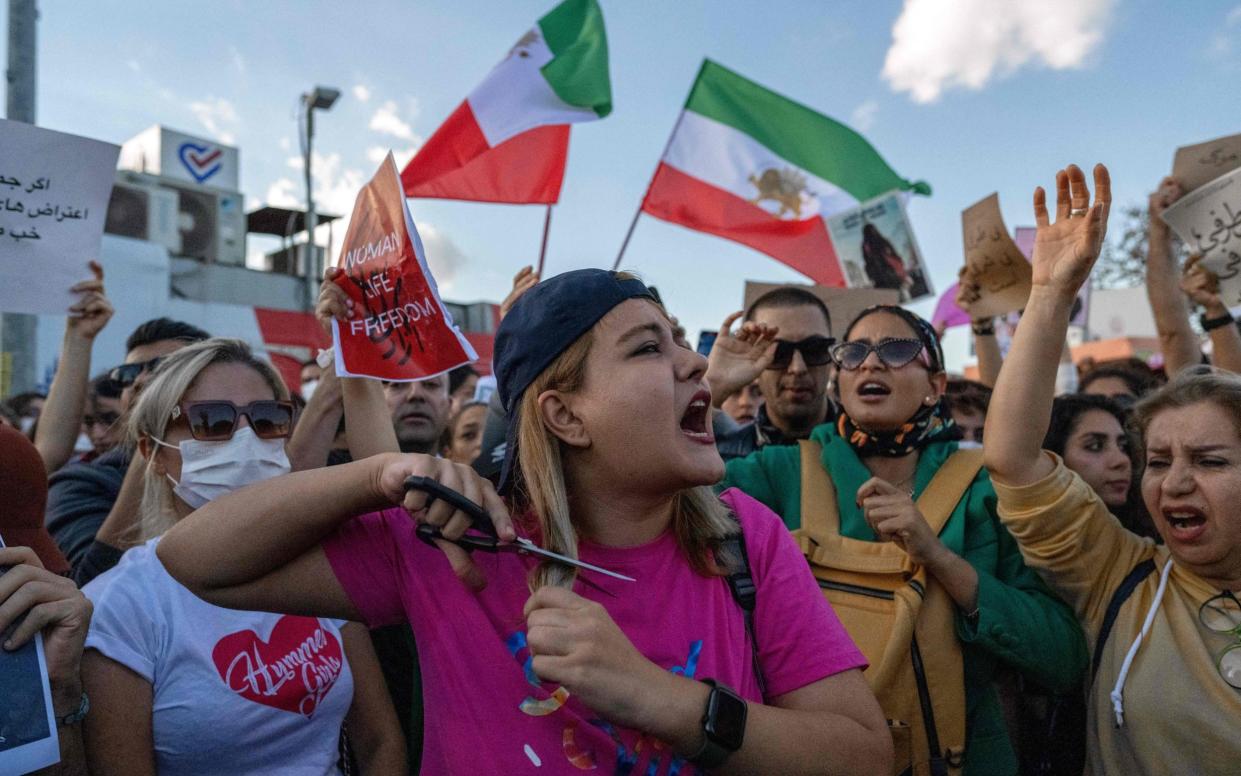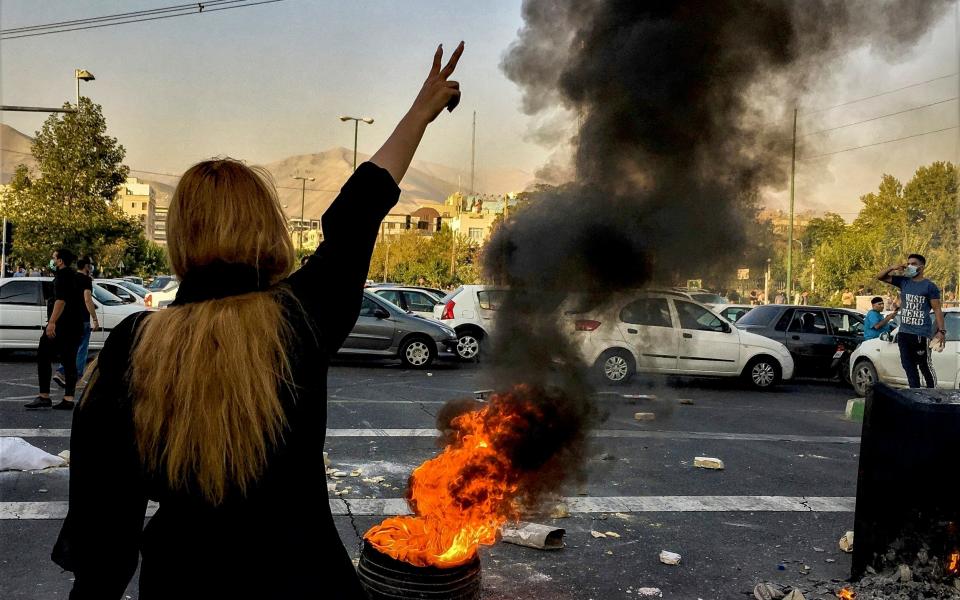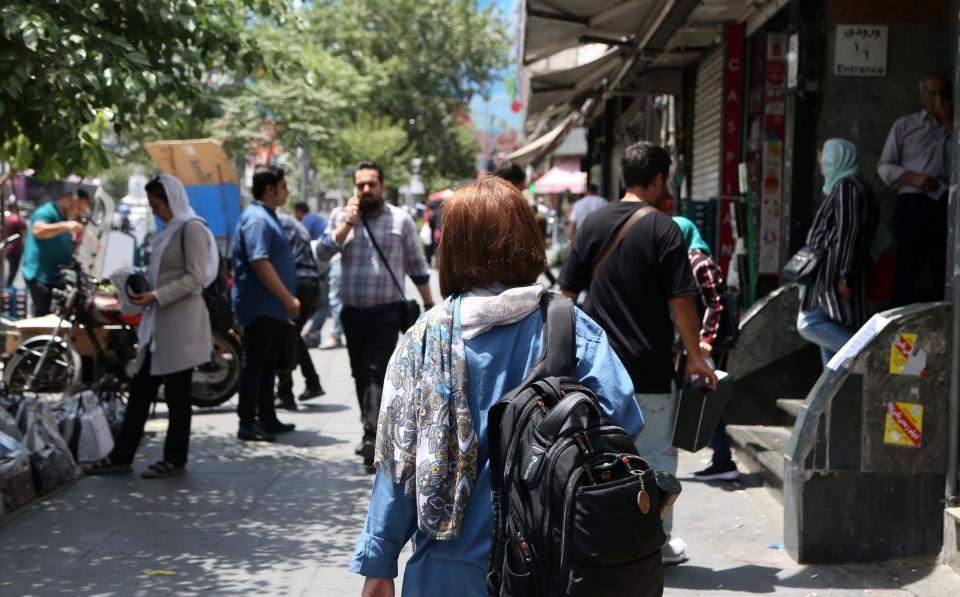Iran’s ‘morality police’ use CCTV to target one million women for not wearing headscarves

Iran is deploying mass surveillance tactics, including CCTV tracking, to crack down on women who defy compulsory veiling, human rights activists have warned.
Between April and June, Iranian police sent more than one million text warning messages to women seen on camera without a headscarf in their cars, Amnesty International said in an analysis of official government data.
“The first time I received a warning for not wearing a headscarf while driving, I was passing through an intersection when a camera captured a photo and I immediately received a warning text message,” Maryam, a 52-year-old woman from Esfahan province, told Amnesty.
“The second time, I had done some shopping, and as I was bringing the bags into the car, my scarf fell off, and I received a message noting that due to violating compulsory veiling laws, my car had been subjected to ‘systematic impoundment’ for a period of 15 days.”
Police also issued 133,174 texts ordering women to stop using their vehicles, confiscated 2,000 cars, and referred more than 4,000 “repeat offenders” to the judiciary, according to Amnesty.

The organisation said that the intensified crackdown exposes the “dubious nature” of the Iranian authorities’ previous claims of disbanding the morality police.
“Morality policing in Iran is back,” said Agnès Callamard, Amnesty International’s Secretary General. “Today’s crackdown is intensified by mass surveillance technologies capable of identifying unveiled women in their cars and pedestrian spaces. The international community must not stand idly by.”
Other new tactics to police and punish women and girls include the confiscation of cars and job dismissals, while in one case a woman was ordered to wash corpses in a morgue.
Protests erupted in September 2022 after Mahsa Jina Amini, an Iranian Kurdish woman, died in police custody. She had been arrested by Iran’s morality police for alleged noncompliance with the country’s Islamic dress code.
In the ensuing months, tens of thousands of protestors took to the streets calling for regime change and chanting “Women, Life, Freedom”. They faced mass arrests and detentions, and seven men were executed.
In December, in an apparent concession to the protesters, Iran reduced the role of the country’s morality police.
But on July 16, a police spokesperson announced the return of police patrols to enforce compulsory veiling and threatened legal action against women and girls seen in public without headscarves.
Officials and state media outlets have also begun to refer to women and girls who defy measures as a “virus” and “new deadly form of coronavirus”, according to Amnesty.
In late May, in an attempt to further codify and intensify the crackdown on headscarves, the judicial and executive authorities presented a bill to “support the culture of chastity and hijab” to parliament.
Under this proposed legislation, women and girls who appear without headscarves in public spaces and on social media, or who show “nakedness of a body part or wear thin or tight clothes”, will face a catalogue of penalties.

These include monetary fines, confiscation of cars and communication devices, driving bans, deductions to salary and employment benefits, dismissal from work and prohibition on accessing banking services.
The bill also proposes a range of sanctions against athletes, artists and other public figures defying veiling laws, including bans on professional activities, imprisonment, flogging and fines.
It comes after a number of high-profile figures rebelled against the measures, including the prominent Iranian actress Taraneh Alidoosti and footballer Ali Daei.
Protect yourself and your family by learning more about Global Health Security

